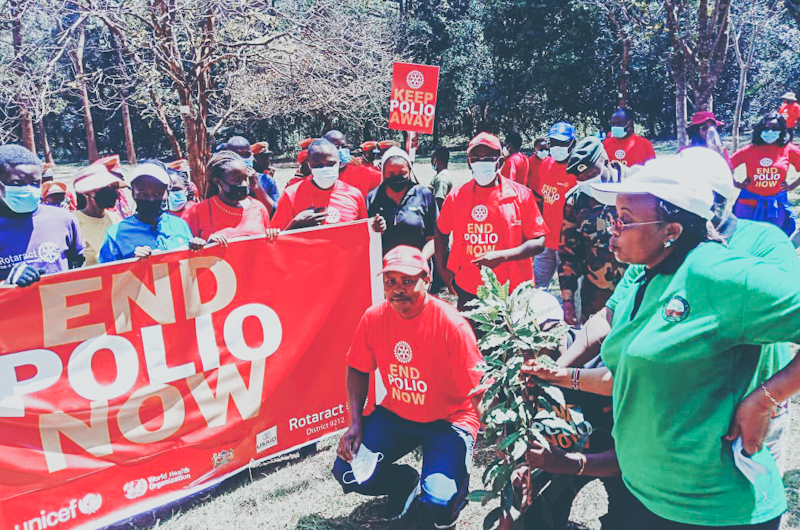Kenya says it will deploy the use of the new novel oral polio vaccine type two (nOPV2) aimed at addressing mutants of the virus. Kenya is among the countries that have been certified to use the novel oral vaccine type two as part of its prioritised polio eradication initiatives.
However, the country remains polio-free according to the Head of Public Health Dr Francis Kuria.
“The Ministry of Health has stepped-up routine immunization activities and in 2020 the country achieved Oral Polio Vaccine 3 (OPV3), coverage of 85 per cent,” Dr Kuria said during the commemoration of the World Polio Day at Arboretum Gardens in Nairobi.
“To rapidly and sustainably stop outbreaks of circulating polio in the region in future, a modified vaccine, known as Novel Oral Polio Vaccine type 2 (nOPV2), is being deployed under World Health Organisation (WHO) guidance and Kenya has been certified to use nOPV2, which is a great milestone,” Dr Kuria explained.
Dr Kuria noted that Kenya remains at high risk of polio importation and transmission and hence the need for extra vigilance.
World polio day event was commemorated today at Nairobi, Arboretum. Dr Francis Kuria Head of Public Health, represented the CS Health, Sen. Mutahi Kagwe pic.twitter.com/XYK2MoZsGe
— Ministry of Health (@MOH_Kenya) October 24, 2021
In May and July, the ministry implemented two rounds of polio campaigns in 13 high-risk counties. They include Garissa, Isiolo, Kajiado, Kiambu, Kilifi, Kitui, Lamu, Machakos, Mandera, Mombasa, Nairobi, Tana River and Wajir counties.
The World Health Organisation (WHO) was listed in November 2020 for emergency use. This is a modified version of the monovalent oral poliovirus vaccine type 2, or mOPV2, currently being used to respond to outbreaks of cVDPV type 2.
In 2020, an estimated 23 million children missed some of their vaccinations last year while an estimated 17 million were not vaccinated at all.
This is according to data from the World Health Organization and the United Nations Children Emergency Fund, which aimed to quantify the health service disruptions caused by the COVID-19 pandemic.
“Even as countries clamour to get their hands on COVID-19 vaccines, we have gone backwards on other vaccinations, leaving children at risk from devastating but preventable diseases like measles, polio, or meningitis,” said WHO Director-General Tedros Adhanom Ghebreyesus, in a press statement.
In Kenya, an estimated 30,000 children did not receive all the scheduled vaccines due to the pandemic.
“Our 2020 administrative data shows a four percentage point decline in coverage compared to a similar period in 2019. This decline exposes many children to the risk of vaccine-preventable diseases, especially measles, rubella and polio. Not reaching the children with other vaccines, also exposes them to risks of severe diarrhoea, pneumonia and cervical cancer,” Dr Kuria disclosed.
To address the shortfall, the Ministry is currently implementing Periodic Intensification of Routine Immunization (PIRI) covering November-January 2022, which aims to increase the uptake of all vaccines and population immunity.
Poliomyelitis is a highly infectious viral disease that largely affects children under 5 years of age.
The virus is transmitted by person-to-person spread mainly through the faecal-oral route and multiplies in the intestine, from where it can invade the nervous system and cause paralysis.




